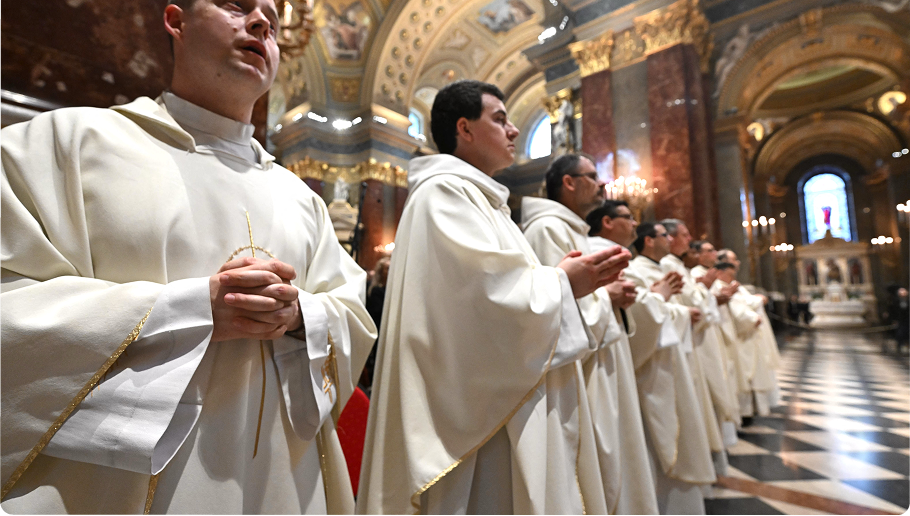Survey reveals sharp generational divide among American priests
Niwa Limbu • October 15, 2025
A sweeping new survey of more than 1,000 American Catholic priests has revealed generational divides, robust trust in Pope Leo, and weakening confidence in the U.S. episcopate.
The National Study of Catholic Priests, released on 14 October and commissioned by Catholic University and Gallup, paints a picture of a clergy at a crossroads.
The updated report builds on earlier research conducted by The Catholic Project at the Catholic University of America, which in 2022 carried out the most comprehensive study of U.S. priests in more than half a century.
Three years later, researchers revisited many of the same priests to measure how their views and experiences have evolved, seeking deeper insight into their pastoral priorities, morale, and confidence in Church leadership.
According to the latest report, younger priests — those ordained since 2000 — are far likelier than their older colleagues to consider themselves theologically and politically conservative, and to prioritise Eucharistic devotion.
Only 8 per cent of the younger cohort accept the label “progressive,” while 70 per cent describe themselves as conservative or orthodox. By contrast, among priests ordained before 1975, 70 per cent call themselves progressive.
Politically, 51 per cent of young priests identify as “somewhat or very conservative,” while just 10 per cent lean liberal; among their senior peers, 61 per cent consider themselves liberal.
One striking divergence lies in attitudes towards synodality. 77 per cent of elder priests list it as a priority, but only 29 per cent of younger priests do. Younger clergy also report a heavier workload, saying they are often expected to perform duties they consider beyond their priestly calling, and they report greater feelings of isolation.
Confidence in Pope Leo is high. Some 86 per cent of respondents say they have “a great deal” or “quite a lot” of trust in him, while only 1 per cent say they have “very little.” But trust in the American hierarchy is more fragile.
Just 52 per cent affirm trust in their own bishop, down from 63 per cent in 2001, and only 27 per cent say they trust the U.S. bishops as a whole. The strongest correlation of trust in one’s bishop is a priest’s belief that “the bishop cares about me.”
The strained confidence in the hierarchy raises questions about how effectively the bishops can maintain internal cohesion, especially amid tensions over liturgy, immigration, and Church teaching.
Pope Leo’s personal liturgical choices — his return to more traditional vestments and his emphasis on safeguarding continuity — suggest a pontificate of stability reminiscent of Benedict XVI’s reverence for tradition. In this sense, his aesthetic posture may reassure those apprehensive about abrupt innovation, which could explain his popularity among younger, conservative-minded clergy.
Historically, the Church in the U.S. has often weathered tension between reform and tradition, as seen in the liturgical and doctrinal battles of the 1960s and 1970s, or the shifting currents following Vatican II.
Today’s survey reveals that the fault lines remain, albeit in new configurations. As young priests gain seniority and the bishops convene in November, the Catholic Church in America faces a delicate moment of reception.
(Photo by ATTILA KISBENEDEK/AFP via Getty Images)

